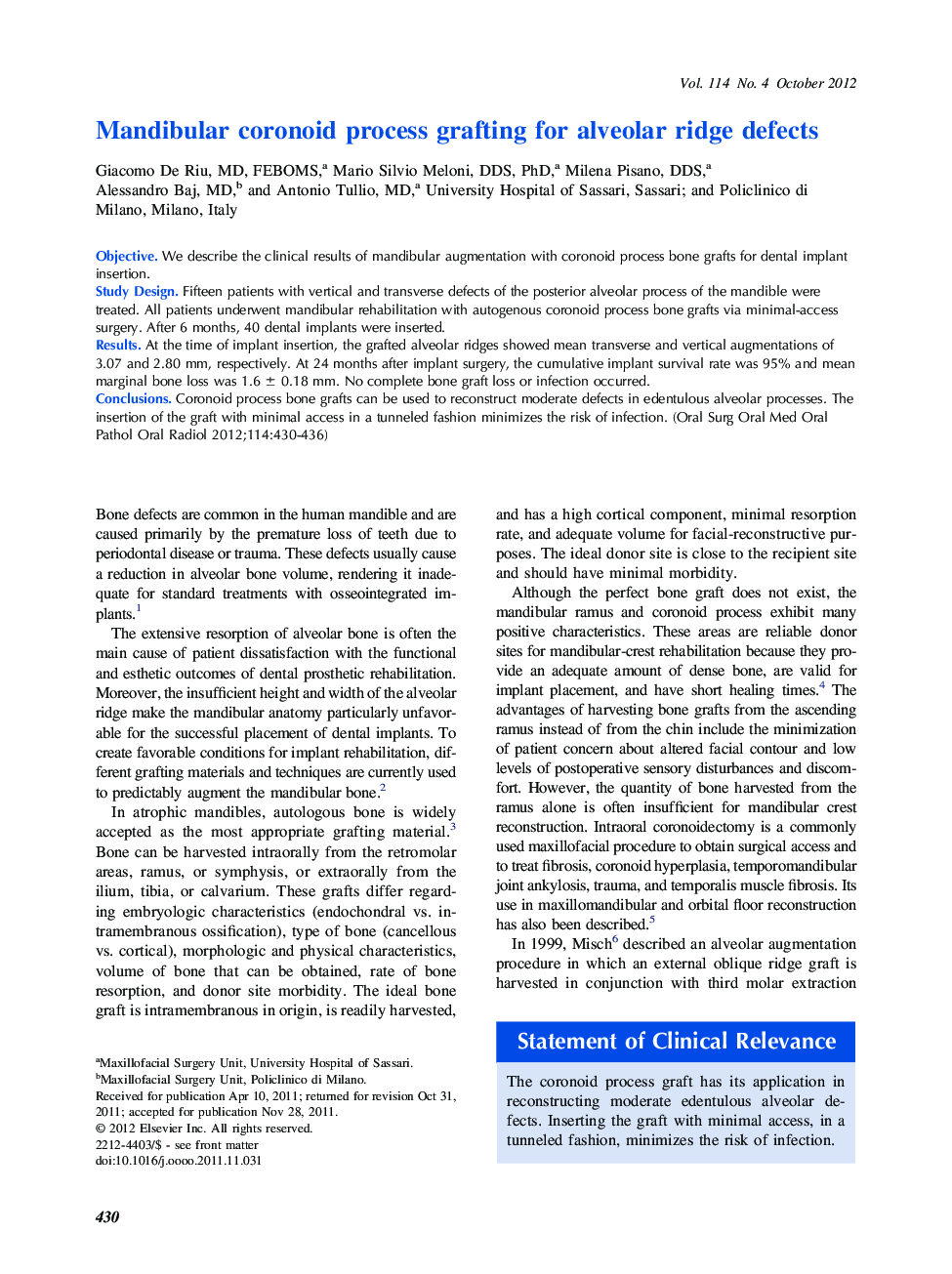| Article ID | Journal | Published Year | Pages | File Type |
|---|---|---|---|---|
| 6058769 | Oral Surgery, Oral Medicine, Oral Pathology and Oral Radiology | 2012 | 7 Pages |
ObjectiveWe describe the clinical results of mandibular augmentation with coronoid process bone grafts for dental implant insertion.Study DesignFifteen patients with vertical and transverse defects of the posterior alveolar process of the mandible were treated. All patients underwent mandibular rehabilitation with autogenous coronoid process bone grafts via minimal-access surgery. After 6 months, 40 dental implants were inserted.ResultsAt the time of implant insertion, the grafted alveolar ridges showed mean transverse and vertical augmentations of 3.07 and 2.80 mm, respectively. At 24 months after implant surgery, the cumulative implant survival rate was 95% and mean marginal bone loss was 1.6 ± 0.18 mm. No complete bone graft loss or infection occurred.ConclusionsCoronoid process bone grafts can be used to reconstruct moderate defects in edentulous alveolar processes. The insertion of the graft with minimal access in a tunneled fashion minimizes the risk of infection.
